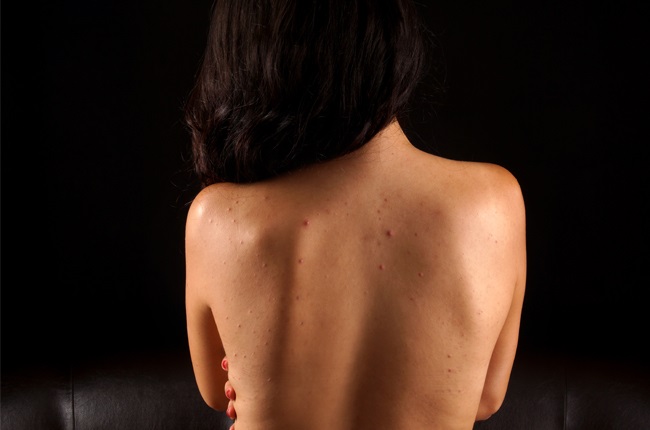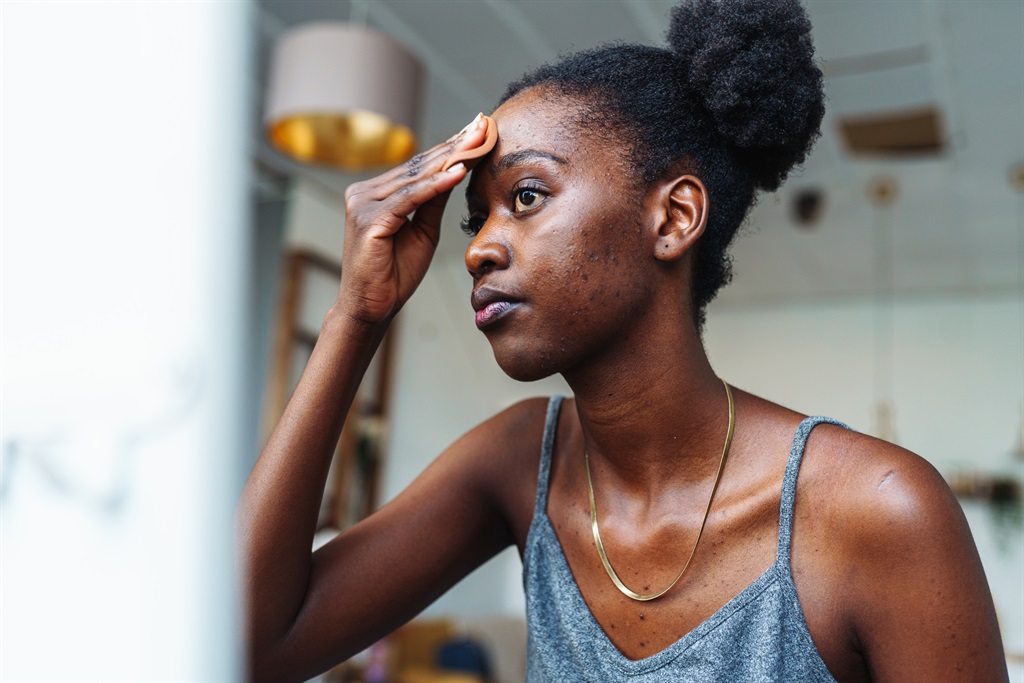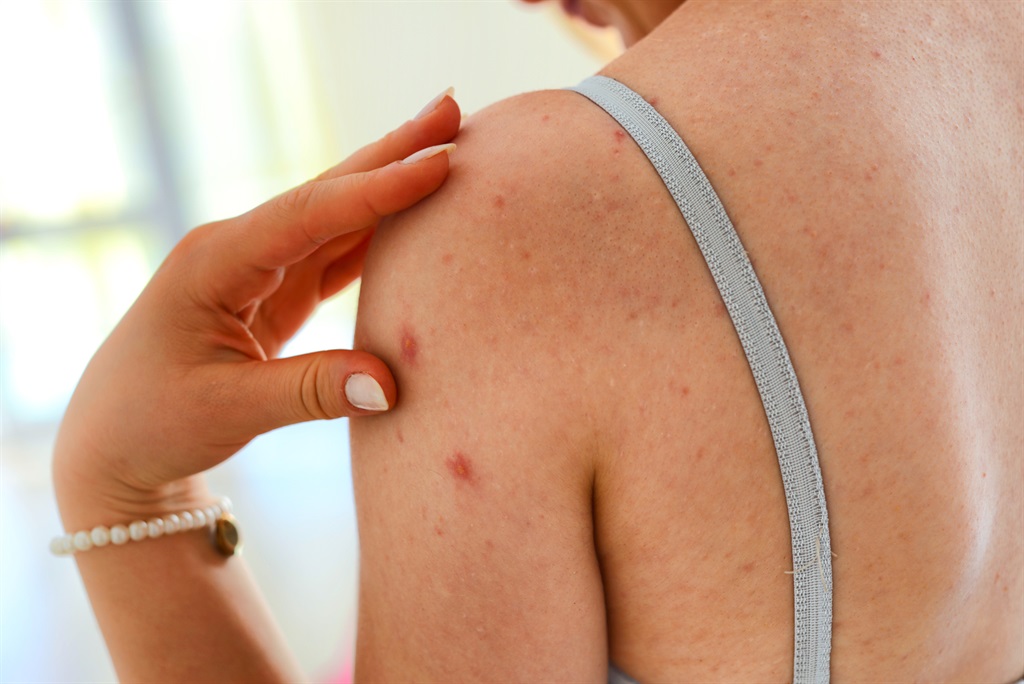
- Adult acne is becoming more common.
- It doesn't just affect the face.
- Body acne or "bacne" is common and it includes areas such as the back, chest, arms, and buttocks.
I have always had mild acne. First on my face and later on my shoulders, chest and back.
The acne has never been cystic, but it has always left behind some dark marks as my skin responded to new pimples by overproducing melanin wherever spots would appear.
As a result, I have always had to contend with unsolicited skincare advice and the occasional stare.
The reaction to my skin initially had me feeling like I was the only person suffering from this, as people would behave as though it was unusual to look like this. I have always been taken aback after seeing some of the world's most beautiful celebrities and influencers looking just like I do whenever they go out in public or post videos without makeup.
I have since learned that acne is one of the most common skincare concerns in the world, and it does not just affect teenagers.
Adult acne is on the rise.
A report on the online medical portal WebMD says almost 10% of all people globally have experienced acne at some point in their lives, and they estimate that more than 50 million Americans struggle with acne yearly.
If you've seen viral pimple-popping videos online, you would know acne does not just affect the face.
Body acne – sometimes called "bacne" – is much more common than you may think. Areas of the body that do not include the face or neck, such as the back, chest, arms, and buttocks, are known sites for body acne.
What causes body acne?
There are various causes of body acne; some are simpler to manage and treat than others.
Local skincare brand Tree Hut South Africa defines common causes of body acne as follows:
Hormonal: Our hormones play a significant role in the appearance of our skin. When they fluctuate, or when there is an imbalance, it may lead to acne on the face or the body. Hormonal acne is prevalent among teenagers and may require medical treatment.
Sweat and bacteria: Anyone with an active lifestyle (including athletes and gym-goers) are at risk of developing body acne from sweat. When you sweat during a workout, the bacteria from that sweat sits on top of your skin until you wash it off. Showering straight after a workout may prevent the formation of body acne, but if you delay taking off your sweaty clothes and showering, that bacteria may lead to acne.
Overactive oil glands: Our skins naturally produce oil, which is responsible for moisturising our skin. If we produce too much oil, it may clog our pores, leading to blackheads and, if bacteria invade, a pimple. Overactive oil glands may be linked to hormones, but in some cases, it can be addressed by changing your skincare products and incorporating sebum-controlling ingredients like salicylic acid.
Clogged pores and excess dead skin cells: Our skin sheds thousands of dead skin cells daily. Some cells fall off naturally, while others remain on the skin's surface. If they are not removed, they will build up on the skin's surface, resulting in dullness, uneven texture, and, you guessed it – breakouts. The best way to remove these dead skin cells is to exfoliate your skin once or twice a week. This is true not only for your face but also for your body.
How to manage body acne
According to the brand, exfoliation is excellent ammunition in your fight against body acne.
"It removes dry and dead skin cells, excess oil and dirt from the surface of the skin, helping to prevent clogged pores and a build-up of dead skin cells. When done regularly, it plays a major role in the prevention of body acne and blackheads."
The skincare community's view on exfoliation has also evolved in recent years, with some ingredients in physical exfoliants favoured over others to limit any surface damage to the skin.
Others advocate for exfoliating ingredients like acids in place of physical exfoliants.
Tree Hut shared their tips to get the most out of your exfoliation:
When using physical exfoliants like scrubs, loofahs and facecloths, be gentle. Avoid the temptation to rub and tug at your skin. Instead, use gentle circular motions to exfoliate your skin.
Exfoliate upwards. This technique stimulates blood flow and encourages drainage. To use this technique, you need to start exfoliating from your feet upwards, moving in the direction of your heart.
Be consistent. "To best manage body acne, we recommend exfoliating about twice a week. Try to be consistent as you won't reap the full benefits of exfoliation if you wait too long in between sessions."
When dealing with a concern like body acne, it's crucial to determine the cause, as this is the only way to ensure effective treatment.
While regular exfoliation is a fantastic way to slough off dead skin cells and prevent clogged pores, it is not the answer to more complicated causes like hormonal imbalances.




 Publications
Publications
 Partners
Partners














